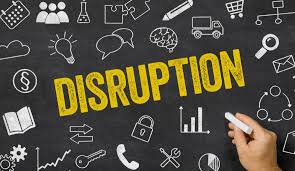Disruptive Startups Shake Up Industries for the New Normal
The world continues to change at a fast pace. That, of course, means the world is crying out for new innovations to help us all adapt to a ‘new normal.’ Is it any wonder, then, that disrupter startups are pulling in more interest than ever before? But what else can we learn from such trends?

What Are Disruptive Startups?
Disruptive startups are ventures which seek to make significant changes. Otherwise known as disruptive innovators, these visionary companies take risks to challenge big industries and ingrained ways of life, thinking, and doing things.
In the modern age, for obvious reasons, this concept is very attractive. Re-inventing the wheel, as it were, to make it more appealing and more convenient, is always going to drive interest.
Some of the biggest disrupters in recent years are some of today’s biggest brands. Uber, for example, re-imagined ride-sharing and cab hailing. Netflix effectively killed the video rental industry for good. Airbnb lit a fire under big hotel comparison engines to focus more on genuine value vacations and escapes.
Disrupters and Popularity
Beyond the obvious, we need to look at a few statistics. A study conducted by Harvard Business Review in 2017 found that potential investors were likely to invest twice as much in a venture using ‘disruptive’ language over those which merely aim to ‘build’ on a scenario or industry. Little seems to be changing in this regard.
Let’s consider a few examples of rising disrupters, too. BlueDot offers geofencing tech used by some of America’s biggest brands. However, recently, they announced that they had successfully claimed Series B funding to continue innovating hyper-precise location tracking for retail logistics.
AI marketing hotshots Pattern89, too, aim to disrupt the way businesses look at marketing creativity. It’s clearly working well so far, as they announced that they had raised $2 million to help build on its 300% client increase since 2019.
Further studies from HBR show that a vision for disruption is likely to increase early funding by at least 22%. Therefore, it’s clear there is a strong taste for new visions, and VCs are taking advantage.
Reasons for Disruption Popularity
The reasons for VCs and investors looking closely at innovative disruption revolve around future projections. Statista suggests that, for example, IoT innovations are likely to impact the US economy to the tune of $3.9 trillion by 2025 – at the least. 5G innovations could drive high estimates for $10.8 trillion in the same time frame.
These statistics, and previous case studies, show that change is good. The world is in dire need of more creative, more streamlined solutions to everyday problems. Thanks to recent world crises, it is evident disruption is needed more than ever before. Telecare and fintech, for example, are two spheres witnessing huge booms with no sign of slowing down.
Venture Capital companies and investors will likely continue to look for promising, disruptive startups through startup databases such as Fundz. In fact, it will hardly be surprising if, by 2025, these disruptive startups are helping to run the new normal.
SOURCES
https://hbr.org/2018/09/disruptive-startups-get-funding-more-easily-but-less-of-it
https://techcrunch.com/2020/07/01/bluedot-series-b/
https://hbr.org/2017/11/startups-that-seek-to-disrupt-get-more-funding-than-those-that-seek-to-build
https://startups.co.uk/startups-100-new-disruptors/?p=126999